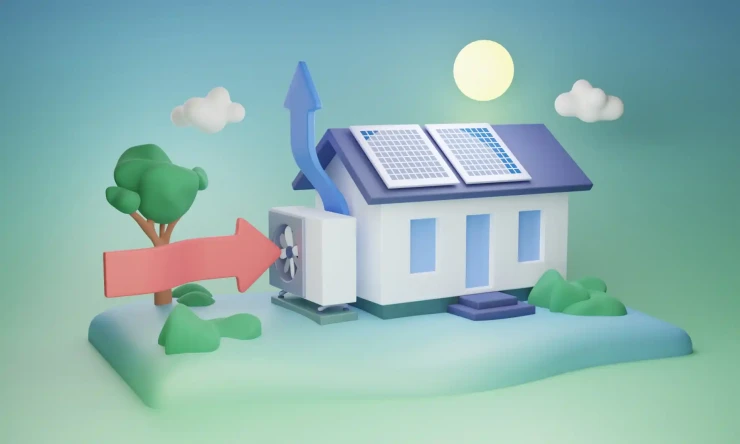Construction is renowned for being a polluting industry, with the industry accounting for almost 40% of all global carbon emissions. But with consumers becoming more aware of the risks to the environment and choosing sustainability more and more, contractors need to start making changes to how they operate. With this in mind, these are a few of the ways that projects can take an eco-friendlier approach.
Switch up your buying culture
The first step to making projects more sustainable is to assess your supply chain and evaluate the hidden impact it might be having. How are you buying equipment or materials, and where are you purchasing them from? How much of your revenue is spent on suppliers and what is the environmental impact of that? There are almost always ways to improve this area of your business to make a lesser impact on the environment, whether it’s reducing dead mileage, reducing fuel consumption by encouraging drivers to avoid idling engines or adopting a circular supply chain.
Use long-lasting materials
Waste management is a serious issue in the construction sector, with huge quantities of waste produced as a result of building projects. But it’s not just the initial build that needs to be considered, but also how those materials will fare further down the line. Choosing materials more carefully can help to reduce the amount of waste by minimising the need for repairs and replacements in the future.
COMPARE PRICES FROM LOCAL INSTALLERS
Compare prices from local companies fast & free
Enter your postcode to compare quotes from leading professionals. We promise to keep your information Safe & Secure. Privacy Policy
For example, composite fencing is favoured for its long lifespan, its UV resistance and the fact that it’s virtually maintenance-free. Likewise, using reclaimed materials can minimise the amount of waste being thrown in landfills, from bricks to roof tiles. Using materials that have been produced sustainably makes them eco-friendlier throughout their entire lifecycle, and there are many options now for recycled materials that keep debris out of waste streams and makes demolition a more sustainable practice.
Adopt better waste disposal methods
On the subject of waste, contractors should examine new ways of disposing of construction waste when working on a project. It’s expected that by 2050, solid waste generation will reach 3.4 billion metric tonnes, an increase of around 70%, so the more we can do now, the better. Reducing that number is possible by recycling more materials, such as steel and timber, and compacting rubble to be used in future construction projects so they can have another life in a different project.
Implement energy-efficiency
Energy efficiency should be implemented during the construction process, but it also needs to be taken into account for the design of the building too. Energy usage for buildings accounts for 28% of all emissions globally, but it’s an easy fix – especially if it’s considered early on. Use renewable energy where possible or switch to hybrid or electric vehicles, for example. There are many gas-electric equivalents to choose from when it comes to heavy machinery, and even some that only use electricity to cut back on emissions.
And making the switch isn’t as much of a challenge as contractors may thing. Even large businesses such as Volvo CE have announced that they are discontinuing diesel-powered wheel loaders and excavators in favour of electric versions, making them one of the first construction equipment manufacturers to make the change but certainly unlikely to be the last.
Prioritise water conservation
Water consumption can be vast, both during a project and once the project is complete and being used, so contractors should identify sources of water pollution so they can mitigate them as soon as possible. For example, can rainwater be harvested and reused, or conserved for future projects? In areas such as Santa Monica, water recycling plants have been implemented to serve not just contractors but a host of clients seeking a sustainable source of water.
Final thoughts
Building in an environmentally focused way may mean more time and money spent up front, but there’s a significant pay-off in the future. Taking steps now such as adopting better waste disposal methods, researching materials with an environmental eye, and using energy-efficient options where possible can all make a project eco-friendly and also bolster your reputation as a contractor, giving you an advantage in the future.
by Daniel Groves





























